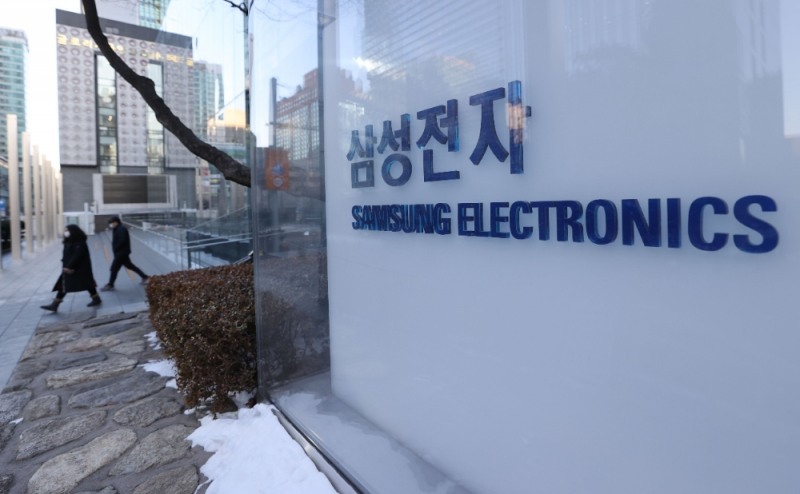 |
Outdoor signage at Samsung Electronics Co.'s office building in Seoul (Yonhap) |
Samsung Electronics Co. is expected to unveil another batch of shareholder-friendly measures, including big dividend payments, later this month, industry sources said Wednesday, in a move to smooth out the group leadership succession.
Samsung, the world's largest memory chip and smartphone maker, is expected to announce its new shareholder return initiative for the 2021-2023 period on Jan. 28, along with its fourth-quarter earnings report.
Local analysts widely expect that Samsung's new measures will be more shareholder-friendly than the previous one, as the company is likely to deliver more dividends to its shareholders.
In 2017, Samsung announced a three-year shareholder return program that centers on returning a minimum of 50 percent of its free cash flow (FCF) to shareholders. It then offered a quarterly dividend of 354 won per share, which translated into 28.8 trillion won of total dividend payments in the 2018-2020 period.
FCF refers to the cash left over after a company pays its taxes, operating expenses and capital expenditures.
If there is FCF left even after dividend payouts, Samsung said the remaining portion will be used either for additional cash dividends or share buybacks.
"In the past three years, the value of Samsung's annual dividend payments stood at 9.6 trillion won, but in the upcoming years, there is a high possibility that the company will present annual dividend payments of around 20 trillion won," said Kim Kyung-min, an analyst at Hana Financial Investment. "This is because Samsung has boosted its capacity for larger shareholder returns following an increase in its operating profit."
Analysts estimate that the value of Samsung's remaining FCF, even after dividend payouts, in the past three years reached around 7 to 8 trillion won.
They predict that Samsung will use remaining FCF for additional cash dividends for shareholders rather than share buybacks considering that Samsung Group heirs, including Samsung Electronics Vice Chairman Lee Jae-yong, need to pay massive inheritance taxes following the death of group chief Lee Kun-hee in October.
Samsung heirs are estimated to pay around 11 trillion won in inheritance taxes for the late chief's stock assets worth around 19 trillion won.
Samsung is expected to enjoy robust earnings this year with rising expectations of a "super cycle" in the memory chip industry. Some analysts have predicted Samsung's annual operating profit to reach around 50 trillion won.
In its fourth-quarter earnings guidance last week, Samsung estimated its operating profit for the whole of 2020 at 35.95 trillion won.
"Samsung is likely to increase the portion of FCF allocated for shareholder portions from the current 50 percent," Kim Sun-woo, an analyst at Meritz Securities, said.
Some critics pointed out that increased dividend payouts may deter Samsung's merger and acquisition (M&A) plans for future growth.
"It's possible that Samsung will come out with a shocking shareholder return step in regard to the heir's inheritance tax payments, but considering long-term growth, increasing dividends may not be the only answer," said an industry official who asked not to be named.
"Samsung is reaching a point where massive M&A investments are needed, so the company will have a lot to think about."
Shares in Samsung dropped 0.99 percent to close at 89,700 won on Wednesday, underperforming the broader KOSPI's 0.71 percent gain. Samsung shares have been soaring in recent months, posting new highs. They closed above the 90,000 won threshold on Monday and Tuesday. (Yonhap)








